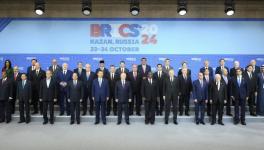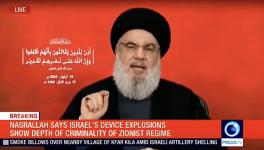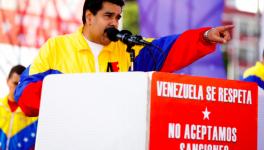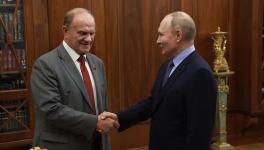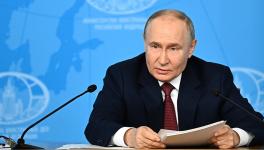Vienna Talks on Iran at Crossroads
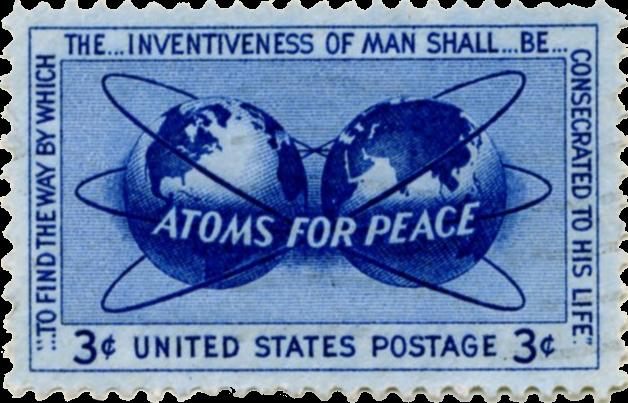
US President Eisenhower’s propaganda stunt ‘Atoms for Peace’ acquires new meaning as Iran uncovers the mystique of atom
Late US President Eisenhower’s propaganda stunt ‘Atoms for Peace’ acquires new meaning as Iran uncovers the mystique of atom
Coincidentally, it was on March 5 that Russia projected its latest demand for sanctions waiver in a written guarantee “at least” from President Joe Biden or at the very minimum from Secretary of State Antony Blinken in regard of its ambitious economic, scientific-technological and military collaboration in the pipeline with Iran. March 5 also happens to be the anniversary of the Nuclear Non-Proliferation Treaty (NPT).
The fate of the NPT may now hinge on the US response. For, if the Biden administration rides the high horse, it will almost certainly be a deal-breaker for the current negotiations at Vienna on the US’ return to the 2015 Iran nuclear deal (JCPOA).
On the other hand, a golden opportunity is now at hand for Iran too to hang tough on its remaining demands — that is, demand for the lifting of the US designation of the elite Islamic Revolutionary Guard Corps (IRGC) as a terrorist organisation; firm guarantee that a future US government will not (again) renege on the nuclear deal; and, that the file regarding International Atomic Energy Agency’s case about Tehran’s nuclear work should be conclusively closed. Russia is firmly supportive of Iran’s demands.
The chances of Biden obliging Moscow with sanctions waiver are nil, as that would lethally damage US’ prestige and make a complete mockery of its weaponisation of the dollar (which is what sanctions are about.) Without using sanctions as weapon, the US is increasingly unable to force its will on other countries.
The “sanctions from hell” recently imposed on Russia also show a new cutting edge. They include freezing of Russia’s central bank reserves. It is a cynical move to the extreme. The US may have sent out a powerful message to China as well, which holds something like $2-3 trillion as US Treasury bonds.
But the call from US Secretary of State Antony Blinken to his Chinese counterpart Wang Yi on March 5 — the same day Russia transmitted its demand for sanction waiver — suggests that Beijing is no doubt closely observing developments.
Wang told Blinken point-blank that Being has “grave concern over recent words and deeds of the US side,” especially with regard to Taiwan and expects “concrete actions” by the Americans to shore up the relationship.
China has consistently opposed US sanctions. On the situation around Ukraine, Wang Yi cautioned Washington from taking further actions that “add fuel to the fire” (alluding to reported plans to dispatch mercenaries to join the fighting), and importantly, “to engage in equal dialogue with Russia, face up to the frictions and problems accumulated over the years, pay attention to the negative impact of NATO’s continuous eastward expansion on Russia’s security, and seek to build a balanced, effective and sustainable European security mechanism in accordance with the “indivisibility of security” principle.”
Suffice to say, if China is not caving in, the strong likelihood is that the negotiations in Vienna may soon lose momentum. The latest Russian demand can even prove a deal-maker. The action-reaction syndrome used to be a staple of the superpower nuclear competition. But Russians seem to have now found an ingenious new dimension to it to counter the US’ weaponisation of dollar by extending the countermeasure to the nuclear non-proliferation question.
By doing so, Russia has elevated the American sanctions regime far beyond crude money terms of seizure of dollar reserves of central banks (which is plain highway robbery) to an altogether new sublime level of “weaponisation of atom.”
Iran has suffered immensely from the US’ weaponisation of the dollar. Ever since its 1979 revolution, Iran has been under western sanctions aimed at stifling its growth and development. The US imposed all sorts of humiliating cruel sanctions against Iran. Things touched a nadir when at the peak of COVID-19 pandemic, the US even blocked Iran’s pathway to procure medicines for its people.
So many such horrific episodes can be culled out from Iran’s painful history of the past four decades as a victim of America’s “weaponisation of dollar,” whereby, an immensely rich country in resources was forced to live far below its real potential, and one of the world’s great civilisations in history suffered humiliations at the hands of an uppity country with some 246 years of history.
It comes as nemesis that Iran is one of the countries that has immense potential to resort to “weaponisation of atom” to counter America’s “weaponisation of dollar.” Whether it will do or not is a moot point. Certainly, Iran’s stated preference is to live without nuclear weapons. That is why it has been anxious to close the deal at the negotiations in Vienna. Iran’s foreign minister Hossein Amir-Abdollahian even told EU foreign policy chief Josep Borrell on Friday that he’s “ready to fly to Vienna” to sign the nuclear deal on Monday.
But the point is, if Iran wishes, it has the capability to meet the US on equal terms even without a nuclear deal in Vienna. In fact, if Biden refuses to provide Russia with a (written) guarantee to suspend the “sanctions from hell,” that deal may not go through in Vienna, since Russia must be party to it as well, being an original signatory to JCPOA. Of course, the Americans are insisting that they will continue to work with Russia at Vienna within the matrix of their shared interest to prevent Iran from making nuclear weapons.
Indeed, as it is, the remaining three demands by Iran also pose big challenge to Biden. Lifting the ban on IRGC is a bitter pill for the Washington elite to swallow; again, Biden is in to position to guarantee that a deal signed in Vienna will have any shelf life beyond his presidency.
Herein lies the catch. Until such time as an agreement is reached in Vienna, Iran’s centrifuges will be producing enriched uranium, which would mean that the so-called “breakout time” keeps shrinking and for all purposes, at some point, Iran will have transformed itself as a virtual nuclear weapon state whether it wants or not — and the very purpose of the deal that the US is frantically seeking at Vienna will be defeated.
For Iran too, this is a moment of truth. Things have come to such a pass in international politics that many countries, which willingly signed the NPT, probably regret their decision now. India, Pakistan and North Korea already broke the NPT shackle. The point is, in the final analysis, nuclear weapon is the means to preserve a country’s strategic autonomy to pursue independent policies.
It provides a firewall against foreign interference in the internal affairs; it reduces the scope for CIA to overthrow the established government; it compels the US to abandon the highly immoral, cynical bullying via “weaponisation of the dollar”; and, above all, it enhances plurality in the world order by strengthening a country’s freedom to choose its path of development.
“Atoms for Peace” was the title of a famous speech delivered by US President Dwight Eisenhower to the UN General Assembly in New York City in 1953. In retrospect, it turned out to be a propaganda component of the US’ Cold War strategy of containment of the former Soviet Union.
Eisenhower was launching a media campaign that would last for years aimed at “emotion management,” balancing fears of continuing nuclear armament with promises of peaceful use of uranium in future nuclear reactors. Ironically, that catchy phrase acquires today an altogether new meaning: Atoms may offer the best means to an equitable world order.
Get the latest reports & analysis with people's perspective on Protests, movements & deep analytical videos, discussions of the current affairs in your Telegram app. Subscribe to NewsClick's Telegram channel & get Real-Time updates on stories, as they get published on our website.










